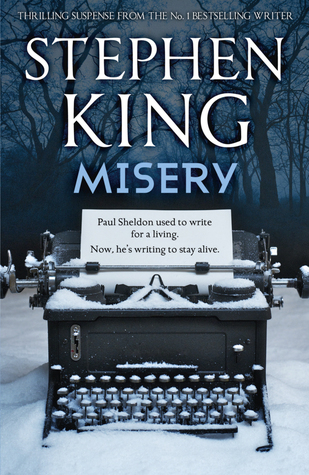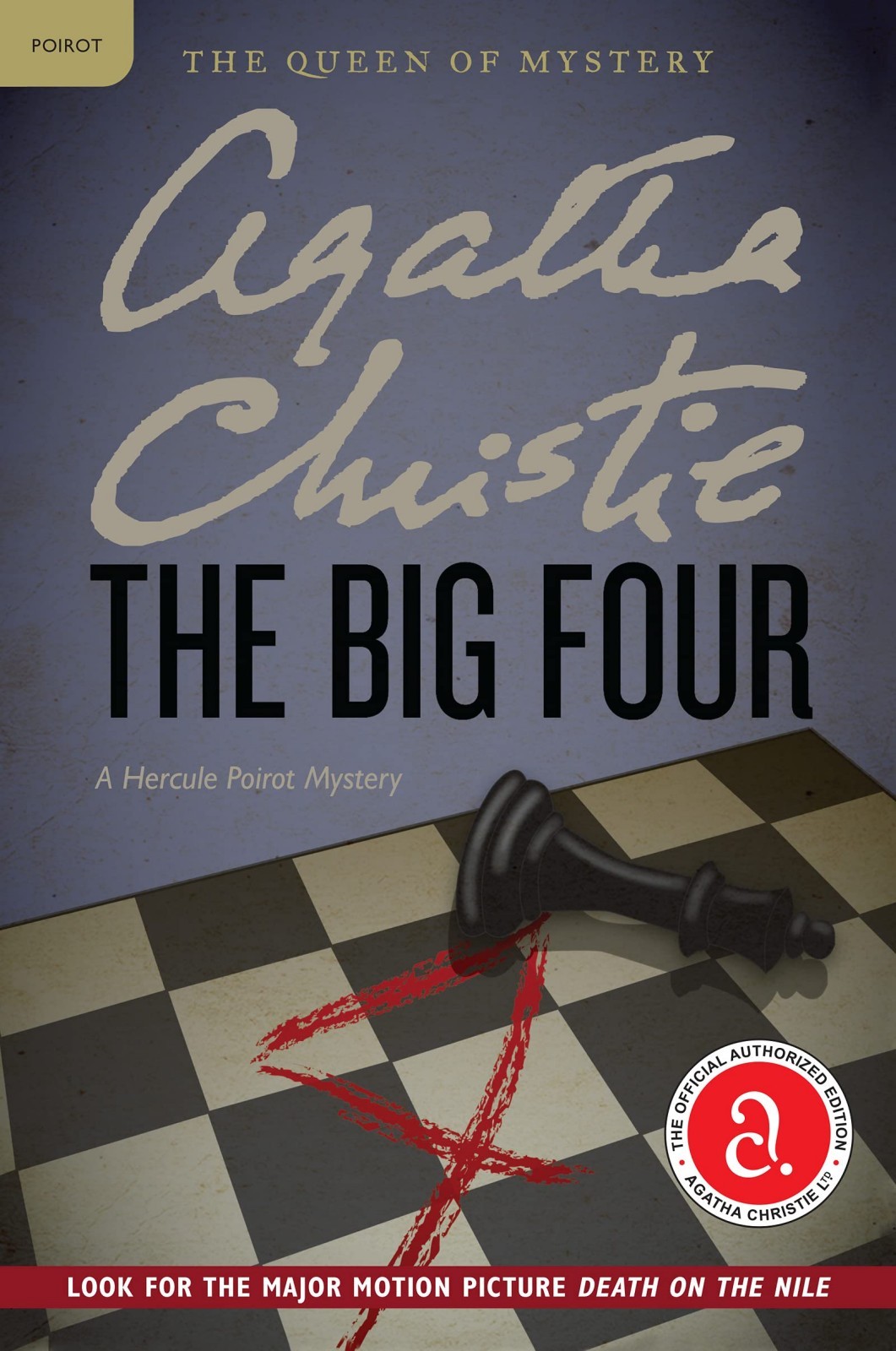Misery
Title: Misery

Author: Stephen King
Published in: 1987
Date read: 3rd January 2020
Score: 5/5
Genre: Horror, Thriller, Psychological
Plot: (Warning, may contain spoilers):
"Misery" by Stephen King, published in 1987, is a harrowing psychological thriller that stands out in King's bibliography for its almost complete lack of supernatural elements. Instead, the horror is purely human, driven by the terrifying obsession of a "number one fan." It is widely considered one of King's most intense and claustrophobic novels.
The story centres on Paul Sheldon, a highly successful author famous for a series of historical romance novels featuring a recurring heroine named Misery Chastain. Paul has grown weary of Misery and the genre, believing it to be beneath his literary aspirations. He has just finished a new, more serious novel, "Fast Cars," which he hopes will establish him as a truly serious writer.
After celebrating the completion of "Fast Cars" at a remote hotel in Colorado, Paul decides, somewhat impulsively, to drive instead of fly back home. He gets caught in a severe snowstorm, crashes his car, and suffers horrific injuries: two shattered legs, a dislocated shoulder, and other severe pains.
He awakens to find himself in a secluded farmhouse, rescued by Annie Wilkes, a former nurse who lives alone in the remote wilderness. Annie immediately professes to be his "number one fan," a devotee of his Misery Chastain series. Initially, Paul is relieved, believing he's in safe hands. Annie nurses him, providing him with painkillers (to which he quickly becomes addicted) and seeming to genuinely care for him.
However, Annie's demeanour swiftly shifts from devoted fan to psychotic captor. When she reads Paul's latest "Misery" novel, "Misery's Child," and discovers that he has killed off her beloved character, she becomes enraged. Her mood swings are violent and unpredictable, and Paul quickly realizes he is her prisoner.
Annie forces Paul to burn the manuscript for "Fast Cars" and then demands that he write a new "Misery" novel, "Misery's Return," which will miraculously bring the character back to life. She sets up an old Royal typewriter with a broken "N" key (a subtle detail that adds to Paul's torment) and provides him with paper, enforcing his writing schedule with a terrifying blend of passive-aggressive manipulation and brutal physical violence.
The novel becomes a gruelling battle of wills and endurance. Paul, severely injured and dependent on Annie for his pain medication, is trapped in her isolated house, completely cut off from the outside world. He attempts various desperate escape plans, only to be caught and brutally punished by Annie. These punishments are among the most infamous and shocking scenes in King's work, including the "hobbling" scene where Annie severs his foot with an axe, and later, cutting off his thumb with an electric knife.
As Paul writes "Misery's Return," he delves into the darkest corners of his imagination, channelling his own "misery" into the narrative. The book he creates within the book becomes a twisted reflection of his own captivity and struggle for survival. He also uncovers Annie's horrifying past through a scrapbook of newspaper clippings, revealing her to be a serial killer responsible for numerous deaths, including infants, during her nursing career.
The themes explored in "Misery" include:
Obsession and Fandom: The dark side of celebrity and fan culture, where admiration can curdle into a dangerous, controlling obsession.
Addiction and Dependency: Paul's physical addiction to painkillers mirrors his psychological dependency on Annie for survival, and also serves as a metaphor for King's own struggles with addiction at the time of writing.
The Creative Process and Artistic Integrity: Paul's forced prostitution of his talent, writing against his will and better judgment, reflects the pressures authors can face from their audience and publishers.
Survival and Resilience: The sheer physical and mental fortitude required to endure unimaginable torture and maintain a will to live.
Confinement and Claustrophobia: The entire novel takes place almost exclusively within Annie's isolated house, creating an intense, suffocating atmosphere.
The climax involves a brutal, desperate struggle between Paul and Annie, where Paul uses the tools of his trade – his typewriter and his wits – to fight for his life, culminating in a violent, bloody showdown. "Misery" is a powerful and unsettling examination of the fragility of the human spirit when faced with pure, unadulterated evil.
Comments:
Wow, this is a great book that deserves the hype it gets as a classic. The mind tricks it plays on the reader is magical. I did see lots of the film version with Kathy Bates when I was younger (too young to watch it really) and it is easy to see why she won the Oscar. The film did well because it sticks so closely to the epic book.
Books that we've read by Stephen King (70):
Carrie (1974), 'Salem's Lot (1975), The Shining (The Shining, #1) (1977), The Stand (1978), Night Shift (1978), The Dead Zone (1979), Firestarter (1980), Cujo (1981), The Gunslinger (The Dark Tower, #1) (1982), Different Seasons (1982), Christine (1983), Cycle of the Werewolf (1983), Pet Sematary (1983), The Talisman (The Talisman, #1) (1984), Skeleton Crew (1985), It (1986), The Drawing of the Three (The Dark Tower, #2) (1987), The Eyes of the Dragon (1987), The Tommyknockers (1987), Misery (1987), The Dark Half (1989), Four Past Midnight (1990), The Waste Lands (The Dark Tower, #3) (1991), Needful Things (1991), Dolores Claiborne (1992), Gerald's Game (1992), Nightmares and Dreamscapes (1993), Insomnia (1994), Rose Madder (1995), The Green Mile (1996), Desperation (1996), Wizard and Glass (The Dark Tower, #4) (1997), Bag of Bones (1998), The Girl Who Loved Tom Gordon (1999), Hearts in Atlantis (1999), On Writing: A Memoir of the Craft (2000), Black House (The Talisman, #2) (2001), Dreamcatcher (2001), Everything's Eventual (2002), From a Buick 8 (2002), Wolves of the Calla (The Dark Tower, #5) (2003), Song of Susannah (The Dark Tower, #6) (2004), The Dark Tower (The Dark Tower, #7) (2004), The Colorado Kid (2005), Cell (2006), Lisey's Story (2006), Duma Key (2008), Just After Sunset (2008), Under the Dome (2009), 11/22/63 (2011), Full Dark, No Stars (2011), The Wind Through the Keyhole (The Dark Tower, #4.5) (2012), Dr. Sleep (The Shining, #2) (2013), Joyland (2013), Mr. Mercedes (Bill Hodges Trilogy, #1) (2014), Revival (2014), The Bazaar of Bad Dreams (2015), Finders Keepers (Bill Hodges Trilogy, #2) (2015), End of Watch (Bill Hodges Trilogy, #3) (2016), Sleeping Beauties (2017), Elevation (2018), The Outsider (2018), The Institute (2019), If It Bleeds (2020), Billy Summers (2021), Later (2021), Fairy Tale (2022), Holly (2023), You Like It Darker (2024), Never Flinch (Holly Gibney #4) (2025)
This page was updated on: 28th July 2025

